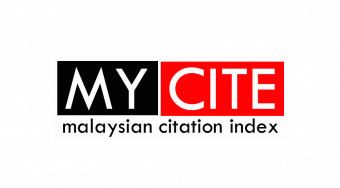WELL-BEING AND ETHICAL VALUES OF WOMEN ENTREPRENEURS IN MALAYSIA: A COMPARISON ACROSS ASEAN COUNTRIES
DOI:
https://doi.org/10.46754/umtjur.v5i2.411Keywords:
Well-being, ethical values, women entrepreneurs, Malaysia, ASEANAbstract
Studies on women entrepreneurs remain limited as compared to their men counterparts. Furthermore, existing literature mainly emphasizes the conventional issue of business performance measured through financial indicators. This study is unique from conventional research that focused on financial performance particularly among male entrepreneurs. To advance, this research embarks to examine the well-being and ethical values of women entrepreneurs in Malaysia. Drawing on data from the World Values Survey wave 7 (2017-2020), I also compare the condition in Malaysia with five other ASEAN countries. In general, I found that women entrepreneurs in Malaysia exhibit a low level of well-being, particularly in terms of happiness, and life and financial satisfaction. Also, they are perceived as moderately ethical towards cheating on taxes and accepting a bribe. Overall, this research contributes to shed light on a novel perspective of entrepreneurship particularly among women. This paper examines two unique dimensions of women entrepreneurship in Malaysia: Well-being and ethical values. It utilizes the recent World Values Survey Wave 7 (2017-2020) data to study five elements in the former (happiness, health, freedom, life satisfaction, and financial satisfaction) and two elements in the latter (perception of cheating on taxes and perception on accepting a bribe). This study employs the recent WVS wave 7 (2017-2021) data to compare all well-being and ethical values across women entrepreneurs in five ASEAN countries (Thailand, Indonesia, Philippines, Vietnam, and Myanmar). The results show that women entrepreneurs in Malaysia exhibit a low level of well-being, particularly in terms of happiness, and life and financial satisfaction. Also, they are perceived as moderately ethical towards cheating on taxes and accepting a bribe.
References
Alemán, J., & Woods, D. (2016). Value orientations from the world values survey: How comparable are they cross-nationally? Comparative Political Studies, 49(8), 1039-1067.
Amorós, J. E., Cristi, O., & Naudé, W. (2021). Entrepreneurship and subjective well-being: Does the motivation to start-up a firm matter? Journal of Business Research, 127, 389-398.
Brush, C. G., & Cooper, S. Y. (2012). Female entrepreneurship and economic development: An international perspective. Entrepreneurship & Regional Development, 24(1-2), 1-6.
Brush, C. G., De Bruin, A., & Welter, F. (2009). A gender aware framework for women’s entrepreneurship. International Journal of Gender and Entrepreneurship, 1(1), 8-24.
Disabato, D. J., Goodman, F. R., Kashdan, T. B., Short, J. L., & Jarden, A. (2016). Different types of well-being? A cross-cultural examination of hedonic and eudaimonic well-being. Psychological Assessment, 28(5), 471-482.
Franzke, S., Wu, J., Froese, F. J., & Chan, Z. X. (2022). Female entrepreneurship in Asia: A critical review and future directions. Asian Business & Management, 21(3), 343-372.
Laffranchini, G., Kim, S. H., & Posthuma, R. A. (2018). A metacultural approach to predicting self-employment across the globe. International Business Review, 27(2), 481-500.
Morris, M. H., Schindehutte, M., Walton, J., & Allen, J. (2002). The ethical context of entrepreneurship: Proposing and testing a developmental framework. Journal of Business Ethics, 40(4), 331-361.
Noguera, M., Alvarez, C., & Urbano, D. (2013). Socio-cultural factors and female entrepreneurship. International Entrepreneurship and Management Journal, 9(2), 83-197.
O’Connor, A. (2013). A conceptual framework for entrepreneurship education policy: Meeting government and economic purposes. Journal of Business Venturing, 28(4), 546-563.
Schreibauer, E. C., Hippler, M., Burgess, S., Rieger, M. A., & Rind, E. (2020). Work-related psychosocial stress in small and medium-sized enterprises: An integrative review. International Journal of Environmental Research and Public Health, 17(20), 7446.
Shir, N., Nikolaev, B. N., & Wincent, J. (2019). Entrepreneurship and well-being: the role of psychological autonomy, competence, and relatedness. Journal of Business Venturing, 34(5), 105875. https://doi.org/10.1016/j. jbusvent.2018.05.002
Stephan, U. (2018). Entrepreneurs’ mental health and well-being: A review and research agenda. Academy of Management Perspectives, 32(3), 290-322.
Vallaster, C., Kraus, S., Lindahl, J. M. M., & Nielsen, A. (2019). Ethics and entrepreneurship: A bibliometric study and literature review. Journal of Business Research, 99, 226-237.
Wiklund, J., Nikolaev, B., Shir, N., Foo, M. D., & Bradley, S. (2019). Entrepreneurship and well-being: Past, present, and future. Journal of Business Venturing, 34, 579–588.
Wilson, G. A., & Perepelkin, J. (2022). Failure learning orientation, entrepreneurial orientation, and financial performance among US biotechnology firms. Journal of Small Business Management, 60(4), 786- 804.
Zhao, D., Jiang, J., & Yin, Z. (2020). Can entrepreneurship bring happiness? Evidence from China. Economic Modelling, 91, 679- 686.
Additional Files
Published
How to Cite
Issue
Section
License
Copyright (c) 2023 Universiti Malaysia Terengganu Journal of Undergraduate Research

This work is licensed under a Creative Commons Attribution-ShareAlike 4.0 International License.




